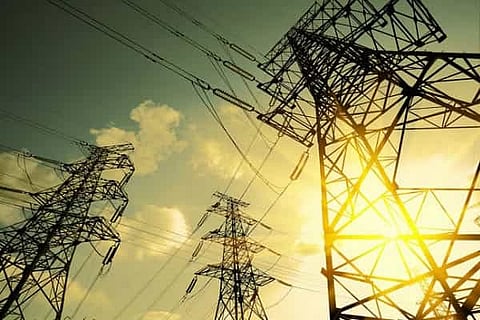
- News Updates
- PSU Watch
- Defence News
- Policy Watch
- हिन्दी न्यूज़
- Jobs Watch
- States News
- Event News

New Delhi: Five states have secured additional borrowing permission from the Central government to the tune of Rs 2,094 crore after successfully meeting the targets set by the Ministry of Power for reduction in Aggregate Technical & Commercial (AT&C) losses and Average Cost of Supply and Average Revenue Realisation (ACS-ARR) gap. "Reform linked additional borrowing permissions are stimulating reforms in power sector in the states. As a part of reform process, five more states namely, Bihar, Goa, Karnataka, Rajasthan and Uttarakhand have successfully met the target set by the Ministry of Power," said the Ministry of Finance in an official statement on Friday.
Reduction in AT&C losses and ACS-ARR gap are two of the three reforms in the power sector stipulated by the Department of Expenditure, Ministry of Finance. A part of additional borrowing ceiling to the states is linked to undertaking reforms in the power sector. States get permission to borrow and amount equivalent of 0.05 percent of the Gross State Domestic Product (GSDP) for meeting the target set for the state for reduction in AT&C losses and additional 0.05 percent of GSDP for crossing the ACS-ARR gap target.
Uttarakhand has achieved the targets for reduction in both AT&C losses and ACS-ARR gap. AT&C losses in the state have reduced to 19.01 percent against the target of 19.35 percent. ACS-ARR gap in the state has been reduced to Rs 0.36 per unit against the target of Rs 0.40 per unit. Goa has brought down the AT&C losses to 11.21 percent against the target of 13.53 percent.
Karnataka has surpassed the ACS-ARR gap target of Rs 0.50 per unit by reducing the gap to Rs 0.44 per unit. Rajasthan has also achieved the ACS-ARR Gap reduction target. Against the target of Rs 1.40 per unit, the state has abridged the gap to Rs 1.16 per unit. Similarly, Bihar has also achieved the ACS-ARR Gap reduction target by 10 percent reductions in the ACS-ARR gap.
"Successful implementation of the reform has made these five states eligible to mobilise additional financial resources of Rs 2,094 crore. The permission for the same has been accorded by the Department of Expenditure. This has provided the much needed additional financial resources to the states to fight COVID-19 pandemic, enhance capital expenditure to stimulate demand," said the statement.
Besides these five states, Andhra Pradesh and Madhya Pradesh have also undertaken the third reform in the power sector, ie, Direct Benefit transfer (DBT) of electricity subsidy to farmers. Consequently, these two states were given additional borrowing permission of Rs 2,938 crore, equivalent to 0.15 percent of their GSDP. Thus, the seven states who have undertaken power sector reforms so far have been granted additional borrowing permission of Rs 5,032 crore, said the statement.
Power sector reforms stipulated by the Ministry of Finance aim at creating a transparent and hassle-free provision of power subsidy to farmers and prevent leakages. They also aim at improving the health of power distribution companies by alleviating their liquidity stress in a sustainable manner.
In view of the resource required to meet the challenges posed by the COVID-19 pandemic, the government had enhanced the borrowing limit of states by 2 percent of their GSDP on May 17, 2020. Half of this special dispensation was linked to undertaking citizen-centric reforms. The four citizen centric areas for reforms identified were: Implementation of One Nation One Ration Card System, Ease of doing business reform, Urban Local body/ utility reforms and Power Sector reforms.
Till now, 21 states have carried out at least one of the four stipulated reforms and have been granted reform linked borrowing permissions. Out of these, 16 states have implemented the one nation one ration card system, 18 states have done ease of doing business reforms, six states have done local body reforms and seven states have undertaken power sector reforms. Total reform linked additional borrowing permission issued so far to the states stands at Rs 91,667 crore.
(PSU Watch– India's Business News centre that places the spotlight on PSUs, Bureaucracy, Defence and Public Policy is now on Telegram. Join PSU Watch Channel in your Telegram and stay updated)
